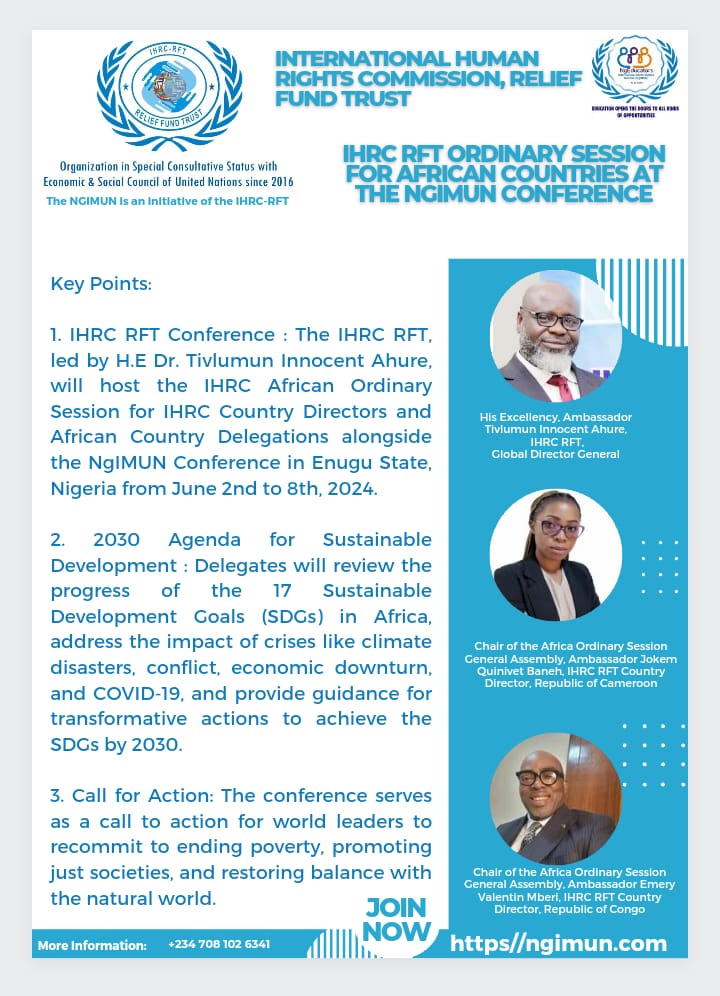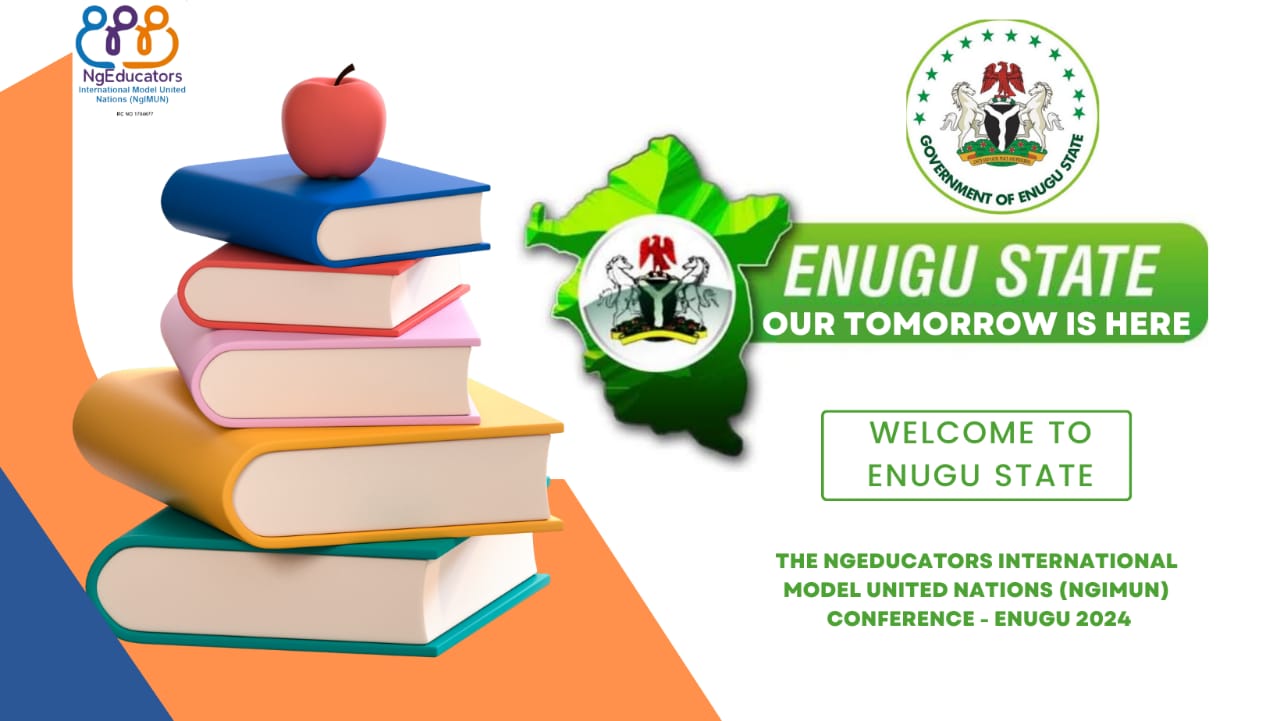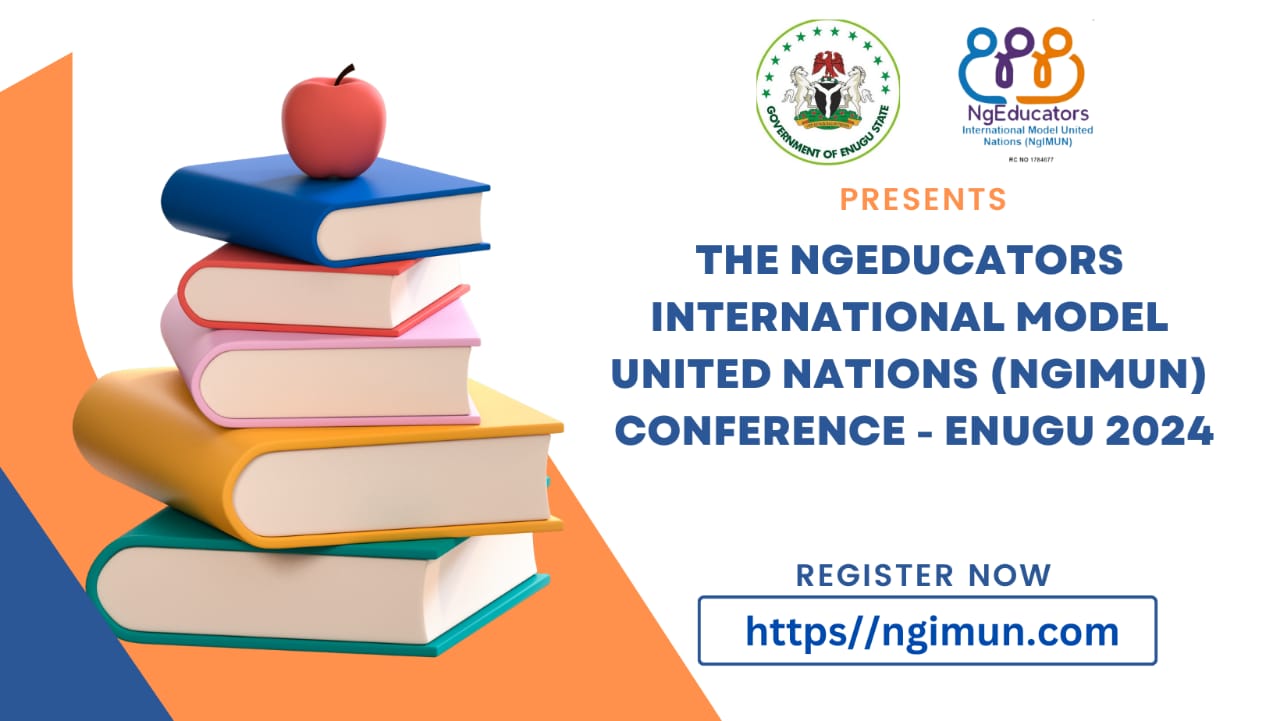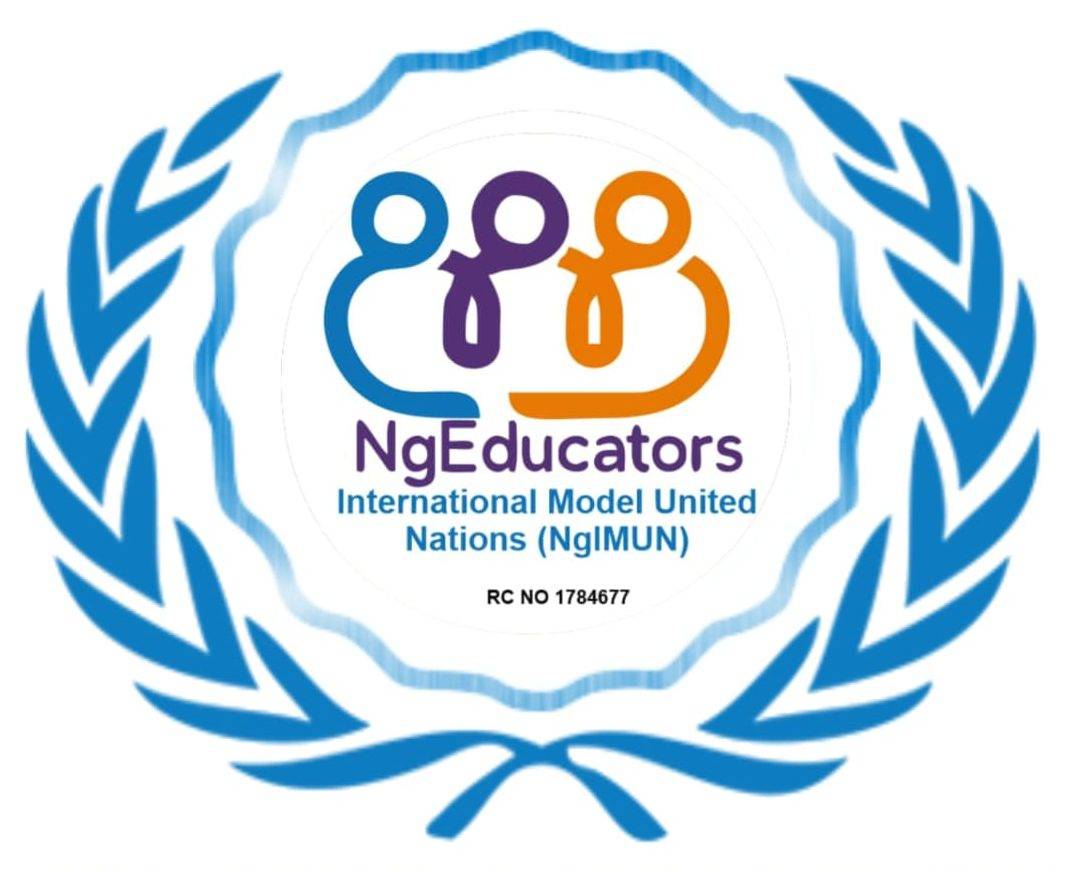What are the expected outcomes of the NgIMUN ENUGU 2024?
The NgIMUN is designed in likewise manner as the key initiative of Our Common Agenda launched by UN Secretary-General (SG), Antonio Guterres, in September 2021. Bringing together global, national and local education stakeholders and actors, it offers an opportunity for inclusive, networked and effective global dialogue on the types of coordinated actions needed to reverse the slide on progress towards SDG 4.

Administrators of the Education sector will learn to think big on how to develop education systems of the future especially in developing nations. NgIMUN is an event with a view to elevating education to the top of the global political agenda and to maximizing public awareness and engagement. It expects to fully mobilize the support of all UN Member States, development partners, civil society and youth organizations, and all other partners and stakeholders in education and beyond.

What are the three pillars of the NgIMUN ENUGU 2024?
The NgIMUN is being prepared and advanced across three intersecting and reinforcing work streams.
National consultations for developing a shared vision, commitment, and alignment of action across constituencies to transform education between now and 2030.
Thematic Action Tracks which place a spotlight on five areas that require greater attention and action and that can accelerate progress on education as part of the 2030 Agenda and transform education, notably:

- Inclusive, equitable, safe, and healthy schools
- Teachers, teaching and the teaching profession
- Learning and skills for life, work, and sustainable development
- Digital learning and transformation
- Financing of education
- Public engagement and mobilization to democratize dialogue around education and to grow a global movement for education transformation building on a range of existing efforts.

What is the timeline of the NgIMUN ENUGU 2024?
The NgIMUN will take place in Enugu State, Nigeria in June (2nd – 8th June, 2024). Several meetings have been held with the Enugu State Ministry of Education officials. The Enugu State Government who will host the NgIMUN ENUGU 2024 has evolved strategies for generating greater momentum in the lead up to the April event.

The timing is critical. In spite of progress made over the past decades, the international community is falling behind on its commitments. Indeed, the world is experiencing a deepening global education crisis, exacerbated by the poor state of education in the developing nations, which has left hundreds of millions of children and young people deprived of their right to quality education. Beyond issues of access and inequality, education systems will face major challenges in the years ahead including: dramatic changes in the world of work, the emergence of technical innovations that challenge the purposes of, and modalities for, education provision, the reality of climate emergency and a general loss of trust between people and institutions.

There is an urgent need to reignite international political and financial commitment to education as a global public good and to accelerate progress towards realizing SDG 4: ‘ensure inclusive and equitable quality education and promote learning opportunity of all’ and radically transform education systems.’ But there is an equally urgent need for collective reflection on how education systems can evolve to accompany and support the transformation of societies by 2030.

The NgIMUN thus takes place at the critical mid-point of the Sustainable Development Agenda and an important juncture in the Global Education Cooperation Mechanism’s roadmap for achieving Sustainable Development Goal 4 (Quality Education).
How States in Nigeria and other countries are expected to contribute?
The 36 States in Nigeria, the federal capital territory and other countries including the education sector stakeholders are central to making the NgIMUN a success and all Nigerian States and countries are expected to actively engage in the various conference work stream activities, namely: convening national and regional consultations, participating in online thematic consultations around the action tracks, contributing good practices, innovative studies and reports, as well as participating in the Pre-conference and the conference.


To this end:

- There will be regular briefings to delegations in the Nigerian States and the countries.
- The NgIMUN Advisory Committee will be co-chaired by the Enugu State Hon. Commissioner of Education and a State representative from the 36 States.
- 17 States representatives are invited to serve on the Conference Advisory Committee.
- The States are centrally involved in the conference Action Tracks.
- Commissioners of Education will be invited to attend the Pre-conference.
- Executive Governors and States Government will be invited to participate in the conference and encouraged to report on progress made in addressing the challenges facing education in their States and present their statement of commitment in education at the conference in April 2024 which should build on existing plans and capture national commitments and consensus on priority actions.






